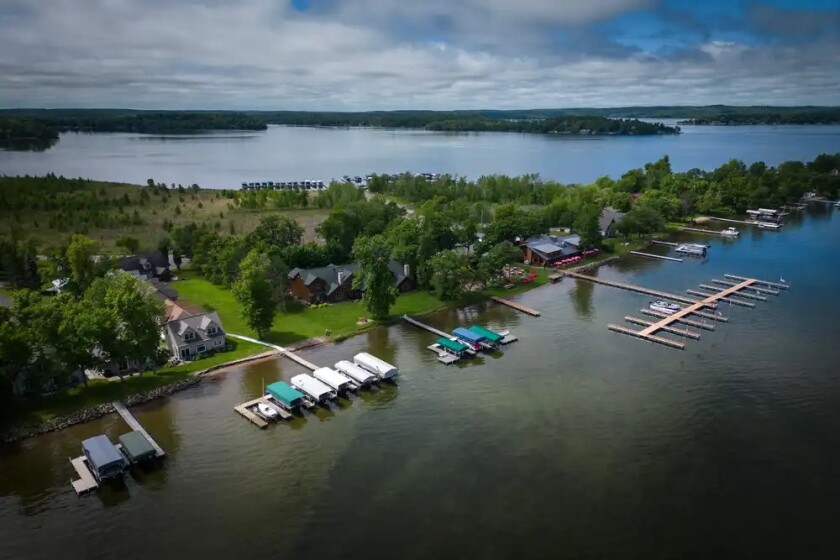ST. PAUL ŌĆö Hot tubs are now fair game for MinnesotaŌĆÖs short-term rental properties, thanks to a new law that declassifies them as ŌĆ£public poolsŌĆØ and ensures uniform regulations across the state.
Effective July 1 and passed during the June 9 special session in the stateŌĆÖs Health bill, the ŌĆ£free the hot tubŌĆØ law declassifies hot tubs offered at short-term rentals as ŌĆ£public pools,ŌĆØ effectively allowing hosts across the state to more easily offer hot tubs as an amenity for guests.
ADVERTISEMENT
Second-term Rep. Isaac Schultz, R-Elmdale Township, authored the bill after he heard from one of his constituents who hosts short-term rentals that she was at risk for not only shutting down her hot tub, but her rental facility in its entirety over the regulations. After the bill became law on July 1, Schultz said the same host reported four new bookings in four hours.
Hot tubs as ŌĆśpublic poolsŌĆÖ
Previously, hot tubs at short-term rentals were by the Minnesota Department of Health. Hosts were expected to meet requirements such as daily chemical testing, proper signage, fencing, entrapment protection, operator training and recordkeeping. If hosts didnŌĆÖt meet the requirements and didnŌĆÖt obtain proper licensing, they could receive a cease-and-desist order.
In 2021, the Minnesota Department of Health of public pools, including hot tubs for short-term rentals, with concerns over sanitation ŌĆö such as rashes and bacterial outbreaks ŌĆö as well as safety hazards like drain entrapment. MinnesotaŌĆÖs entrapment regulations date back to 2008, following the death of a 6-year-old Minnesota girl who was severely injured by the suction of a pool drain and later died from those injuries.
New requirements
Now these short-term rentals can have hot tubs as long as the water temperature in the spa pool does not exceed 106 degrees Fahrenheit and the resort or property owner tests the water before check-in for the concentration of chlorine or bromine, pH and alkalinity to ensure it meets the requirements for disinfection residual,
The new law also states that hot tubs must have a notice conspicuously posted for guests to see that states: ŌĆ£This spa is exempt from state and local anti-entrapment and sanitary requirements that prevent disease transmission waterborne diseases such as LegionnairesŌĆÖ disease, Pseudomonas folliculitis (hot tub rash), and chemical burns and is not subject to inspection.ŌĆØ

Evening the playing field
Before the ŌĆ£free the hot tubŌĆØ law was passed, Schultz said enforcement across the state wasnŌĆÖt uniform. Some counties, such as Cass, would actively enforce the requirements, while others, like Crow Wing, were lax about it, leading to inconsistent compliance, often based on whether that county has a point person from the Department of Health to enforce the licensing, he said.
ADVERTISEMENT
ŌĆ£You had these counties across the state where they had told their short-term rental operators that they could use the hot tub, but then the people in the neighboring county werenŌĆÖt able to,ŌĆØ Schultz said, explaining that on some lakes like Gull Lake, rules were not uniform. ŌĆ£YouŌĆÖre literally talking about the same lake, and you could have ... owners and operators of short-term rentals getting two different rules.ŌĆØ

Schultz said the bill is not only about allowing guests to enjoy amenities, but also about helping small business owners across the state to compete in the tourism industry.
ŌĆ£Every corner of the state will see this, and it should be about helping make Minnesota just the most attractive state to vacation and to enjoy the outdoors at all times of the year, which is important,ŌĆØ he said.












